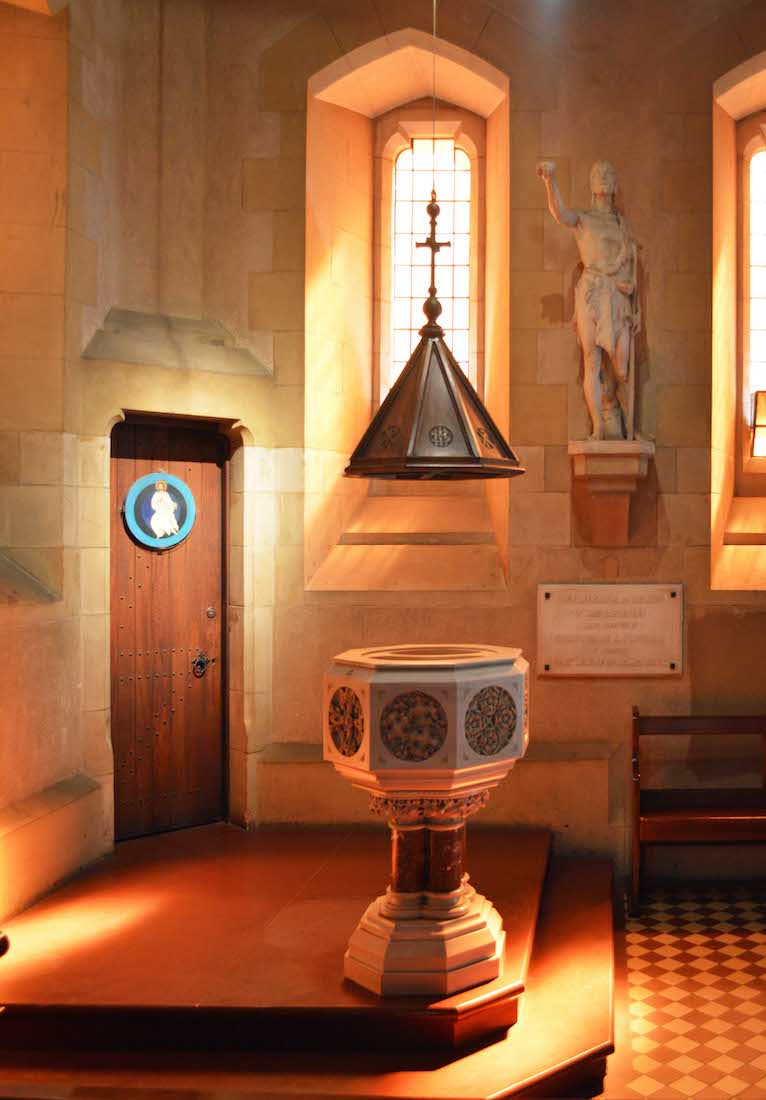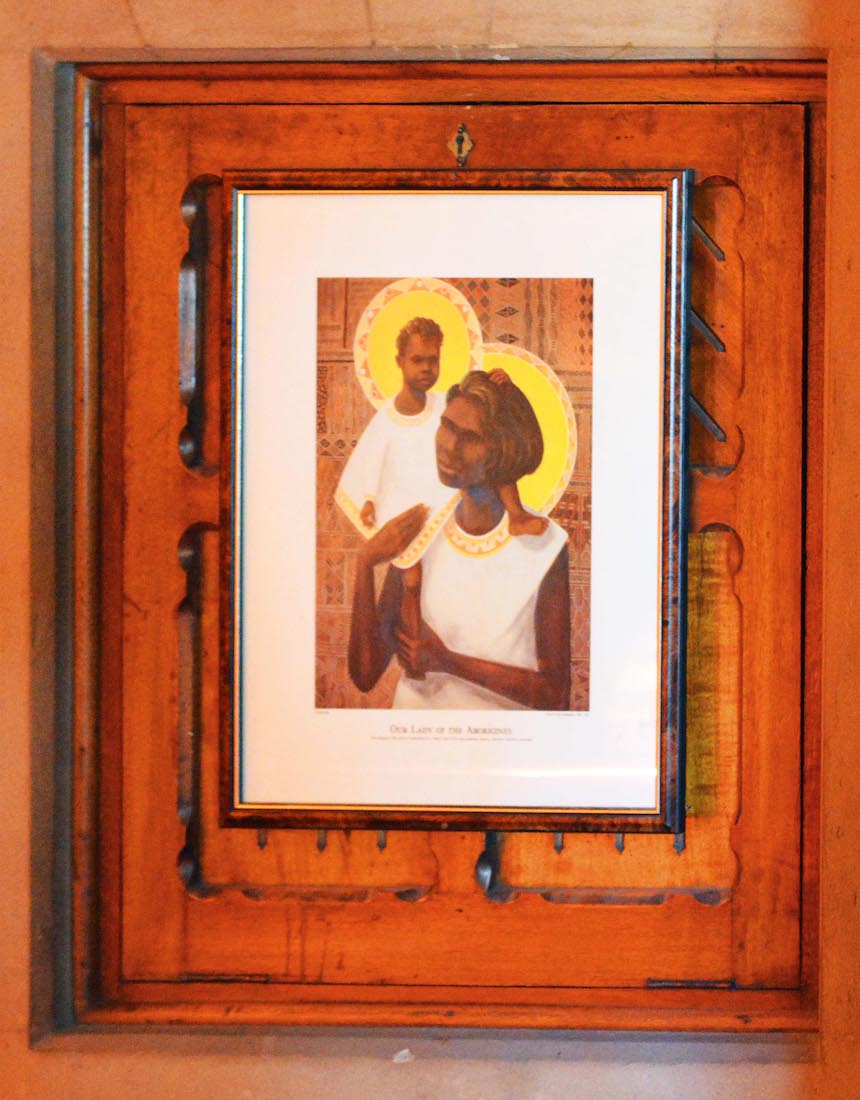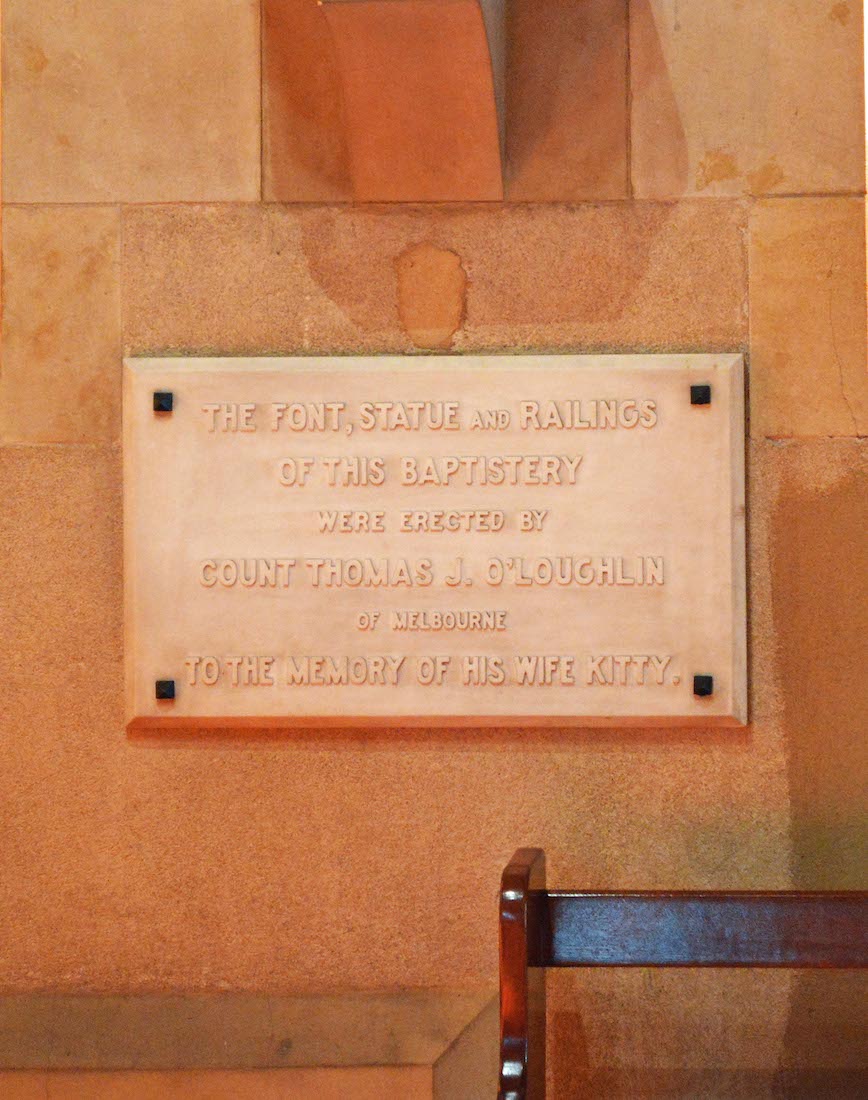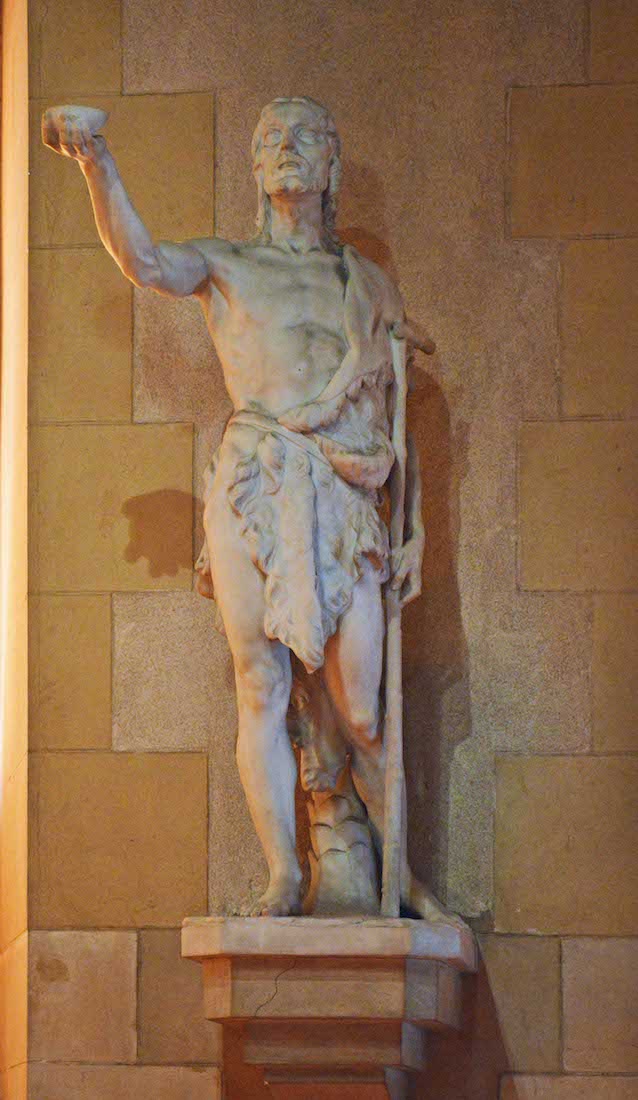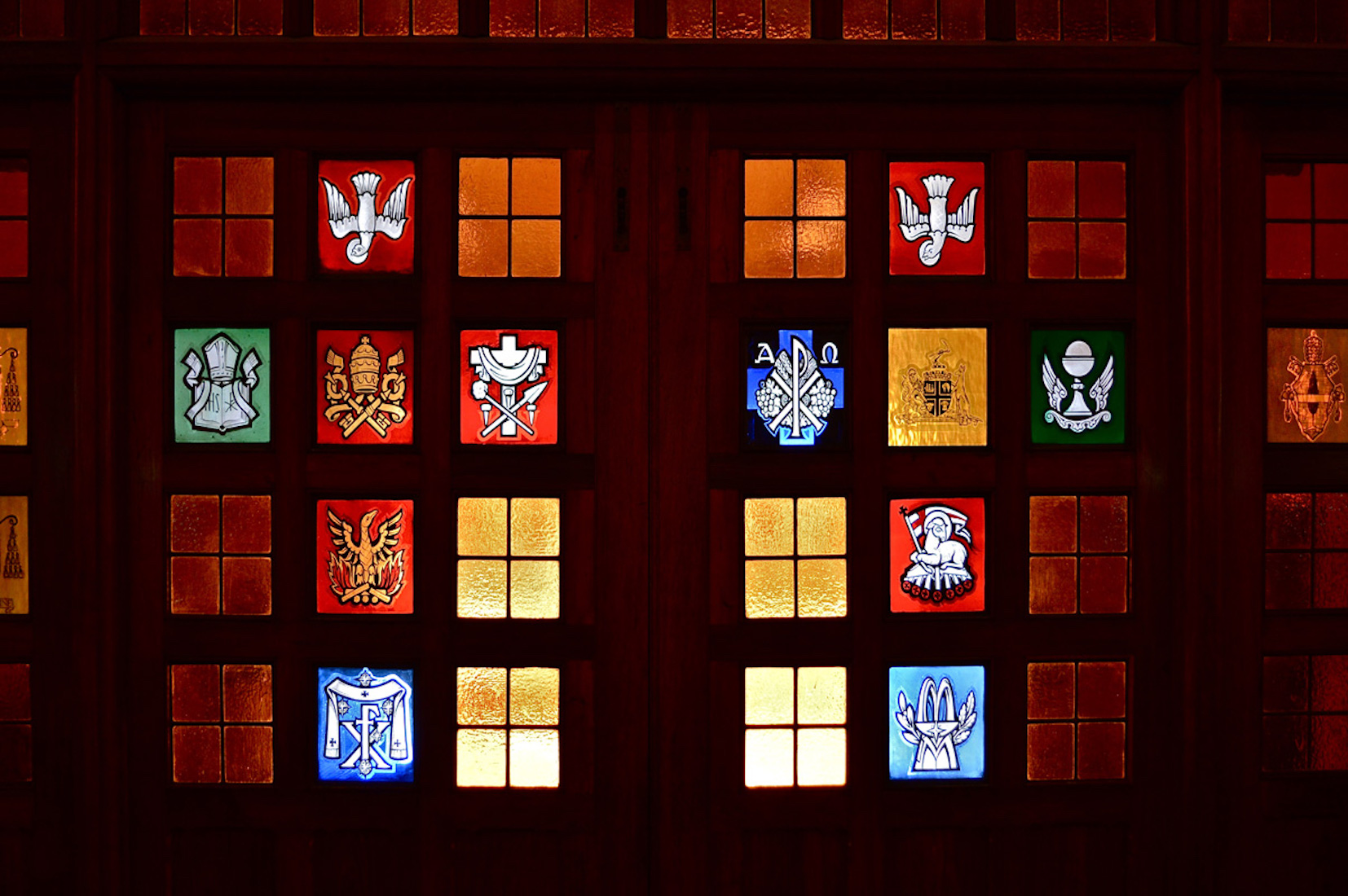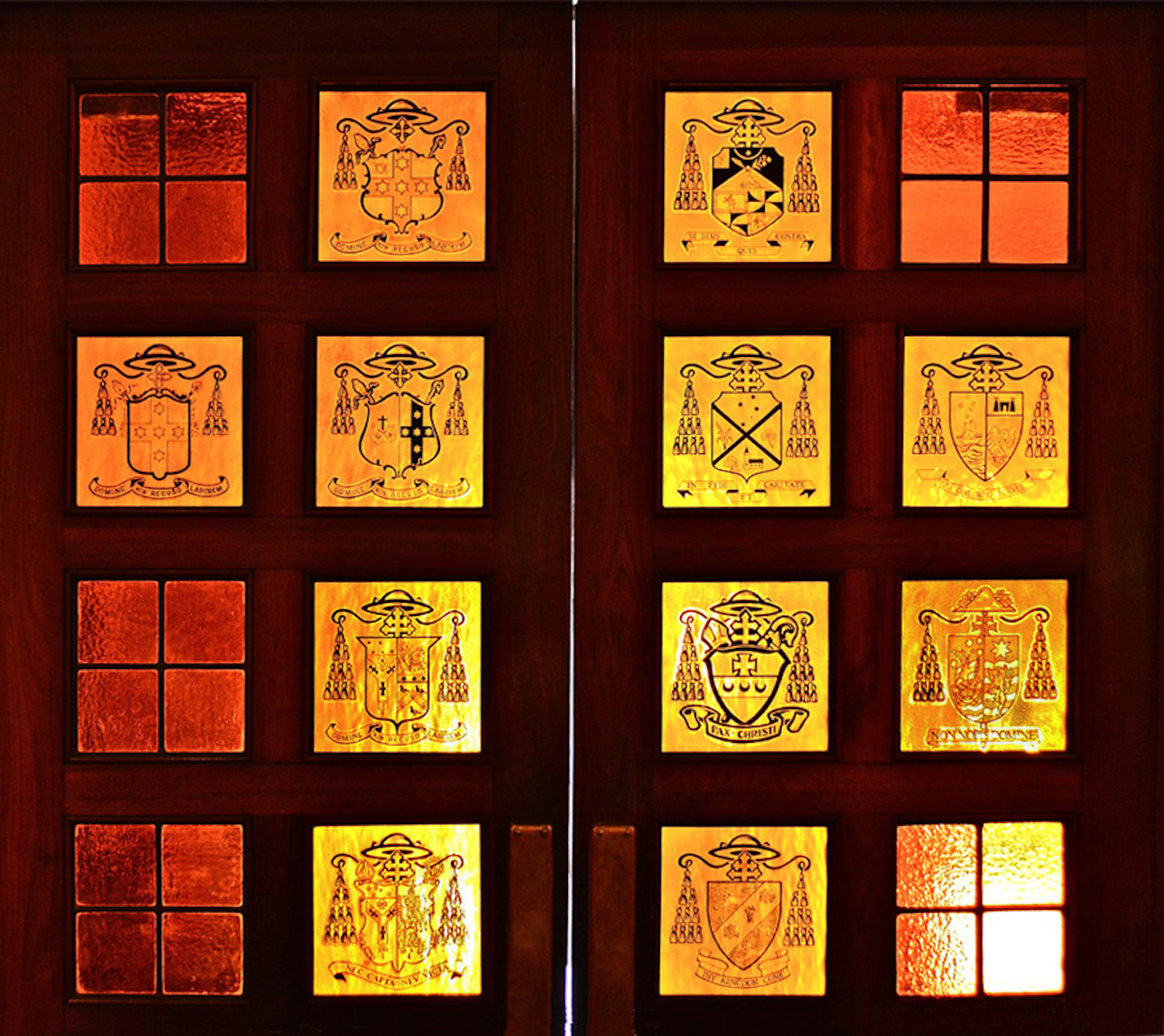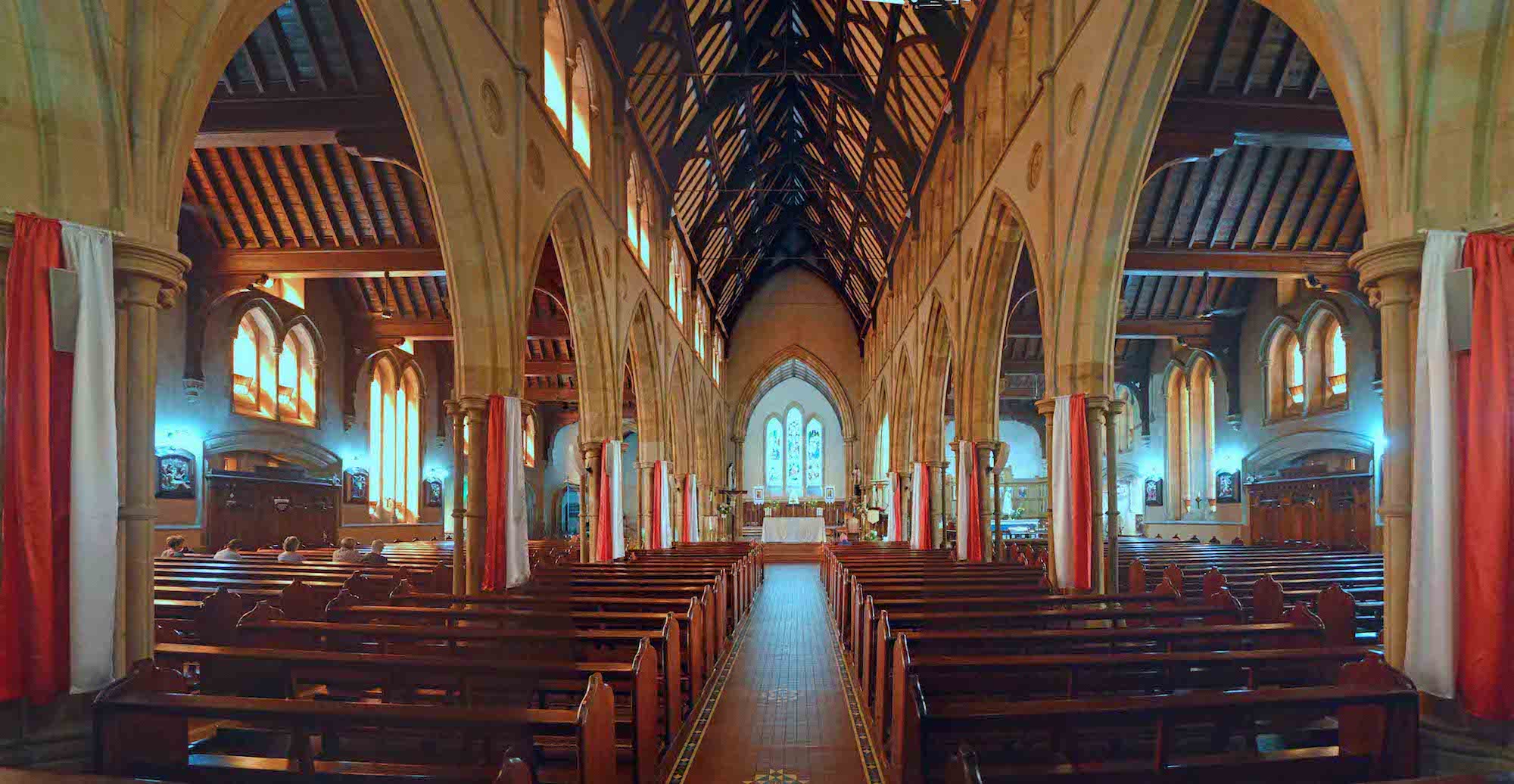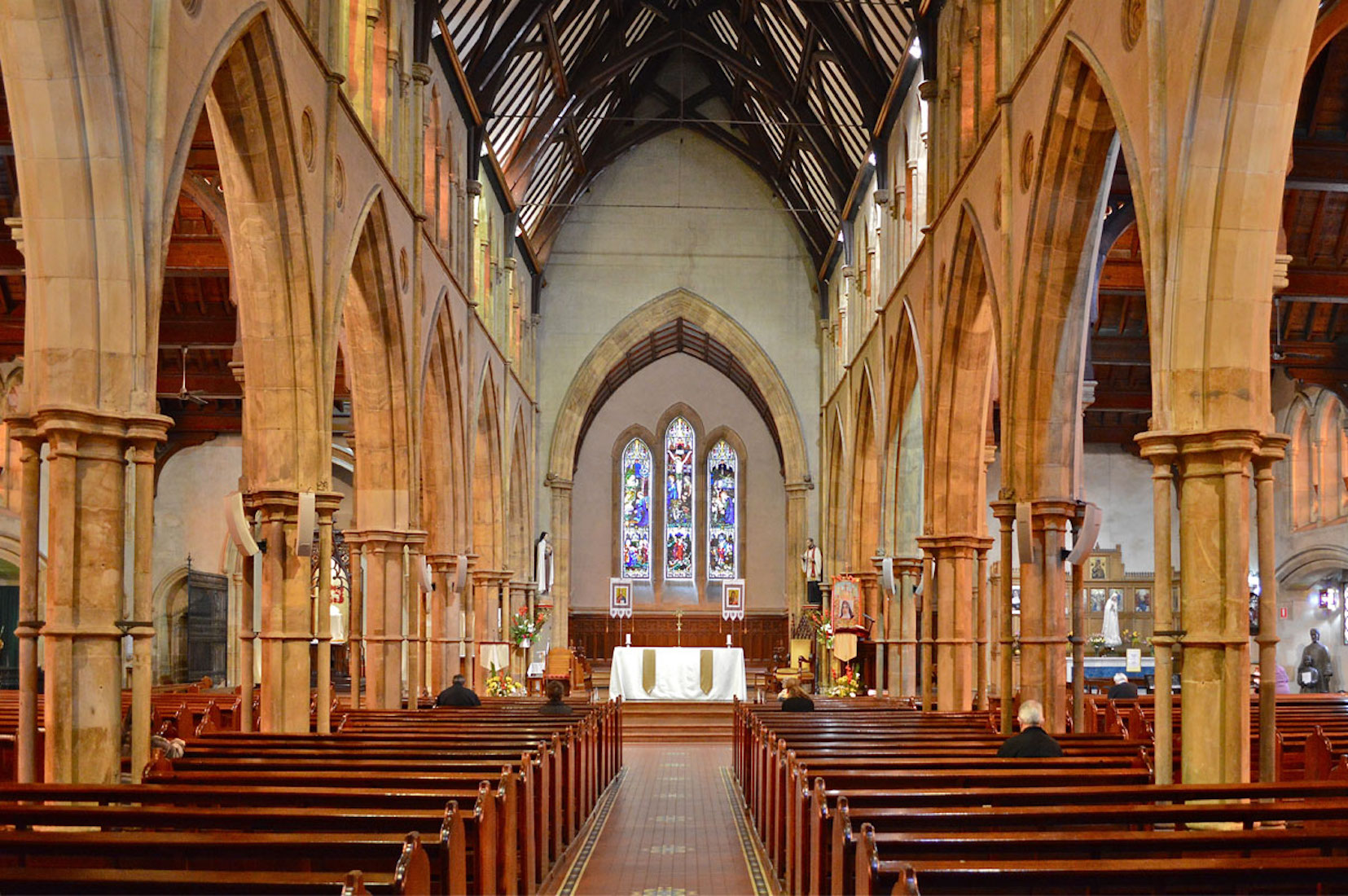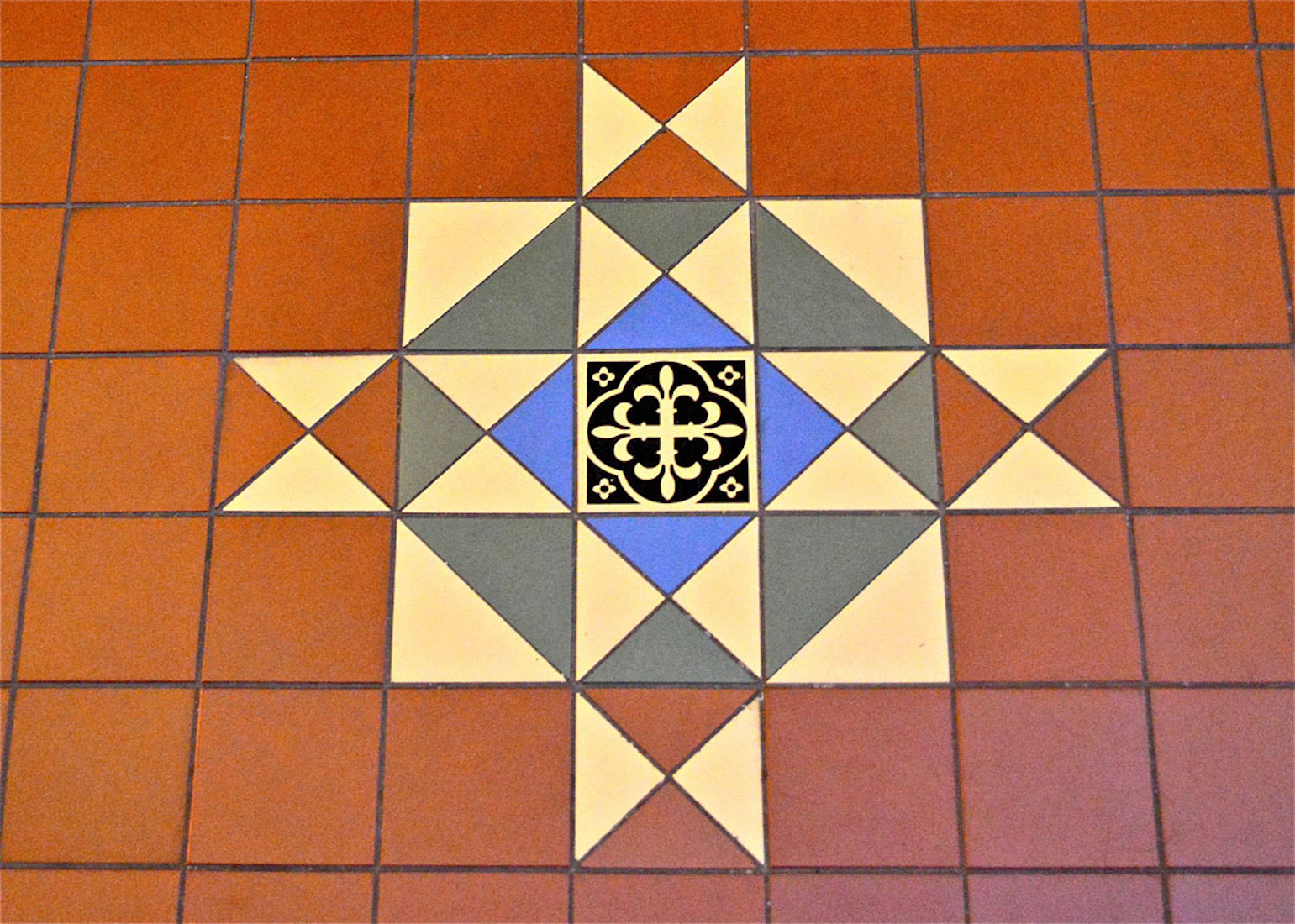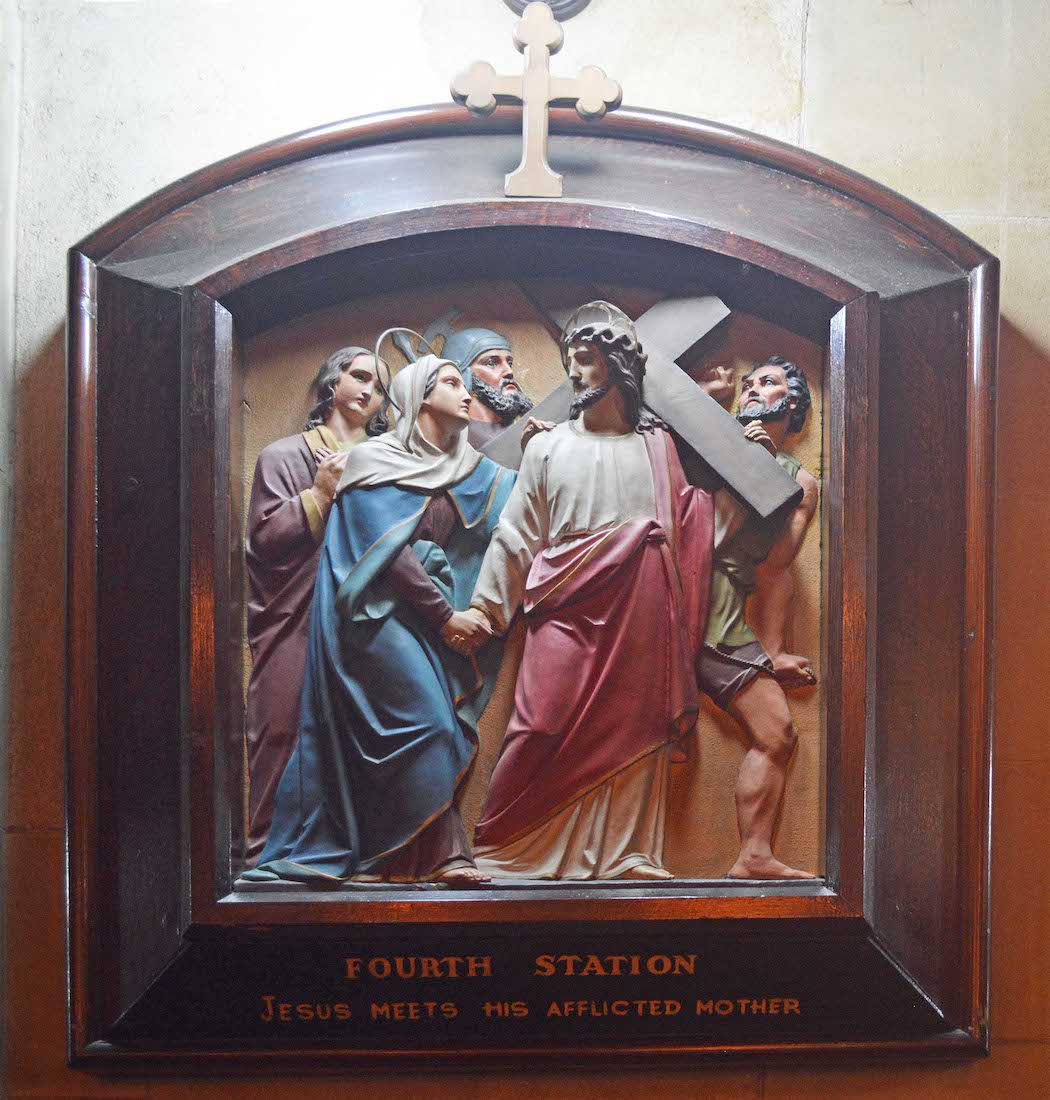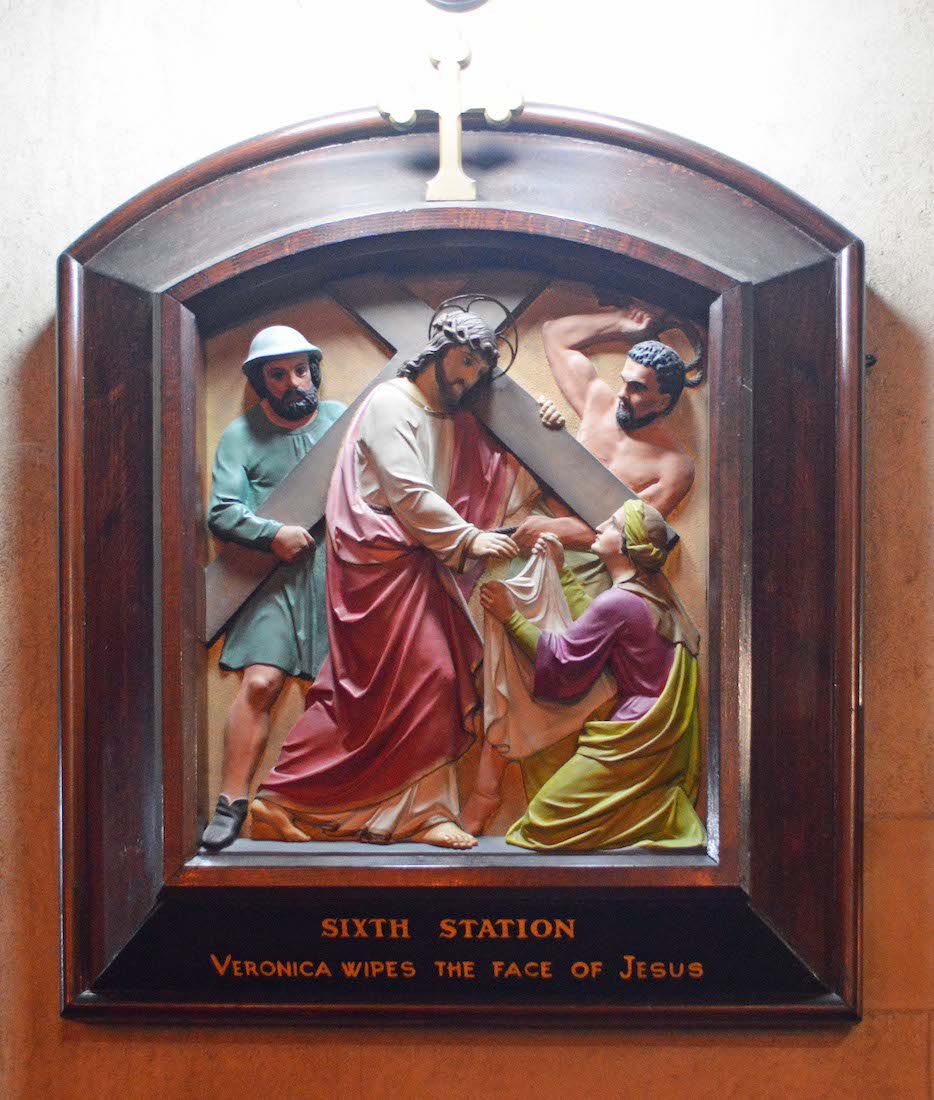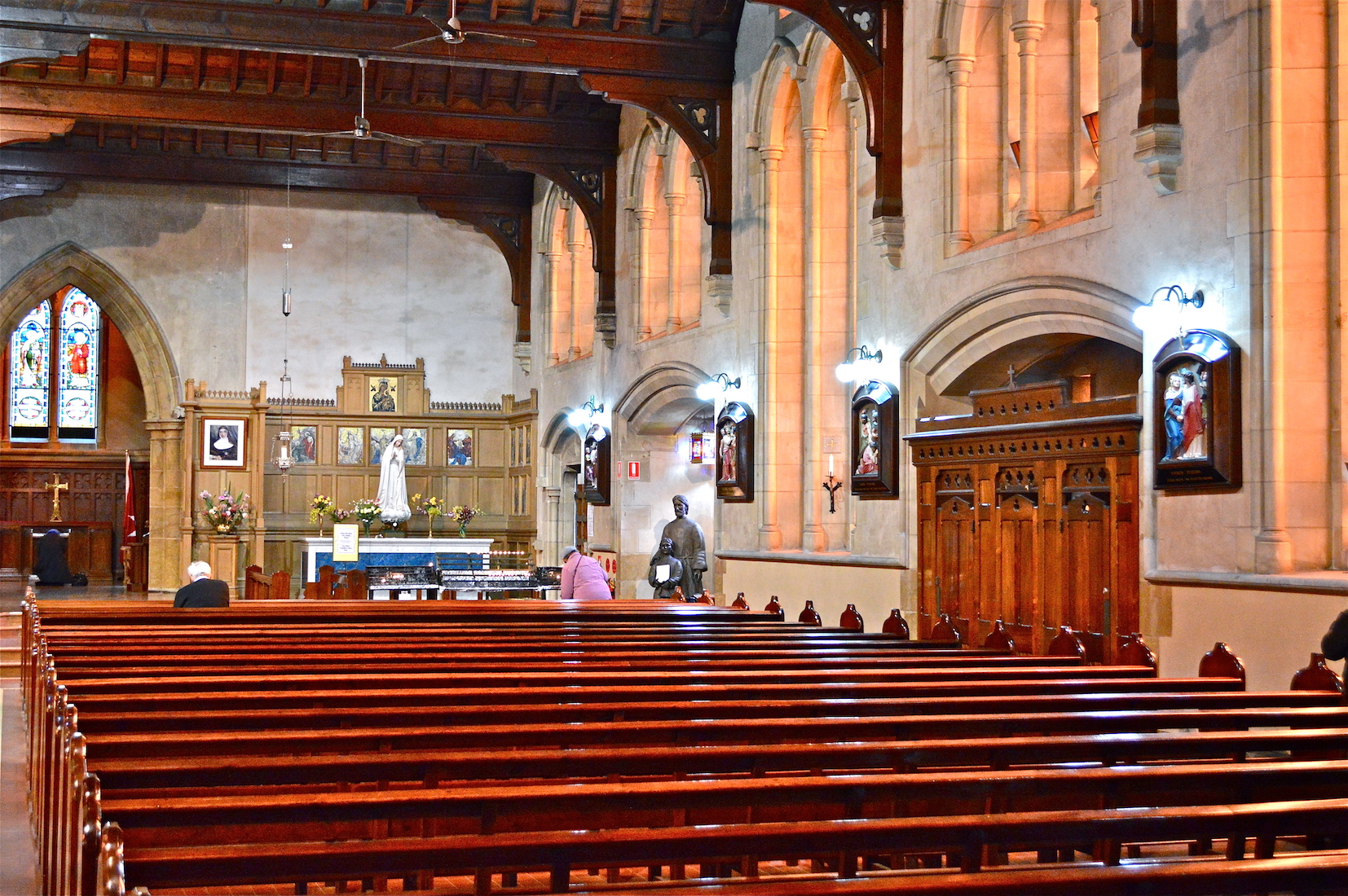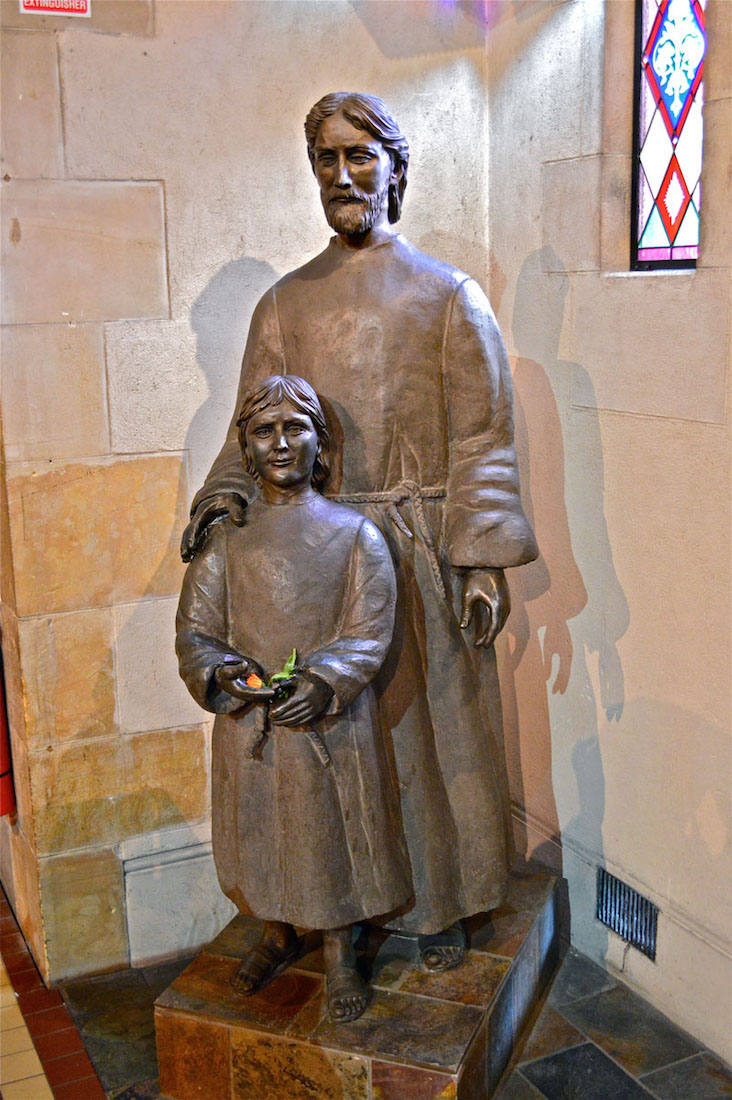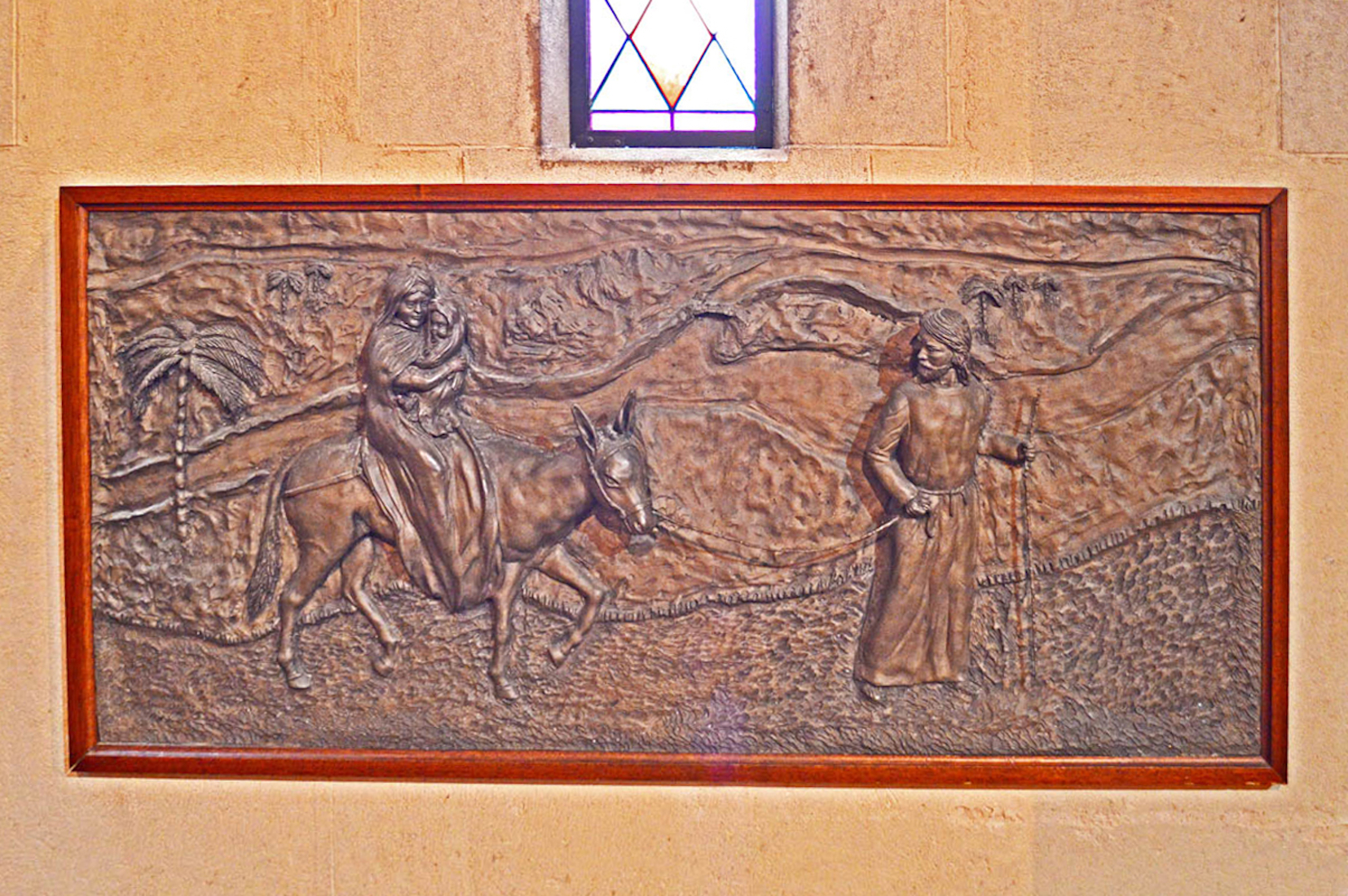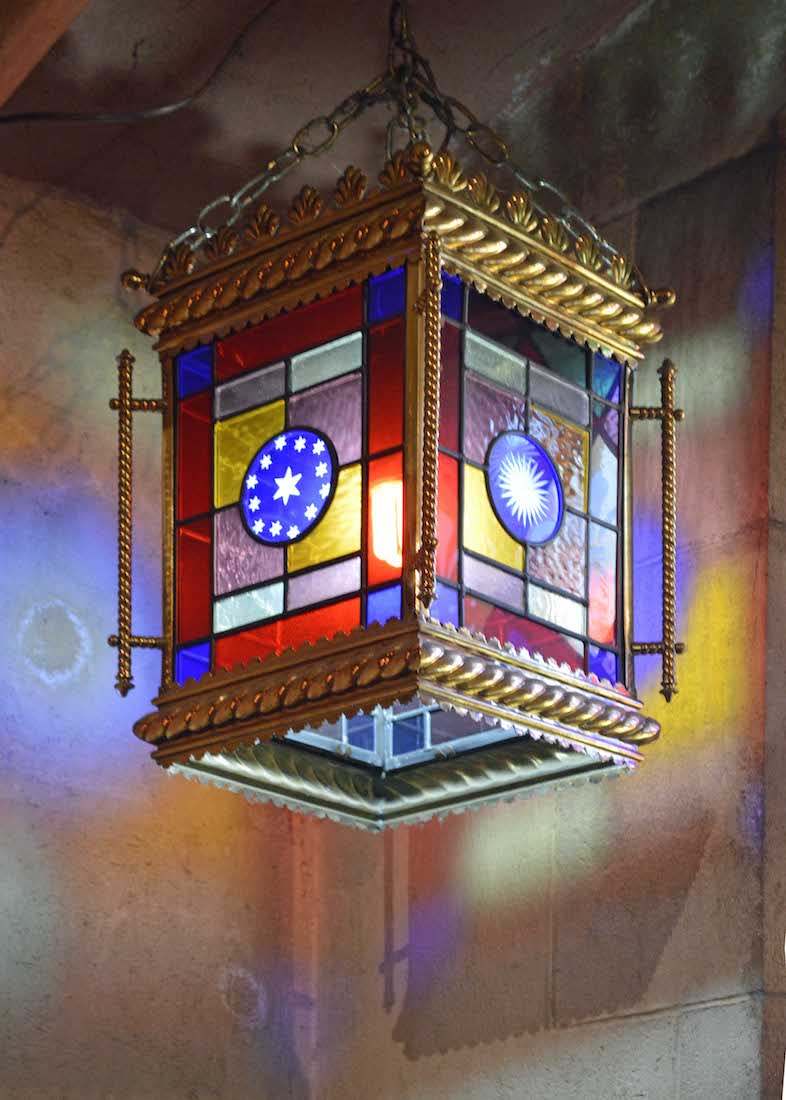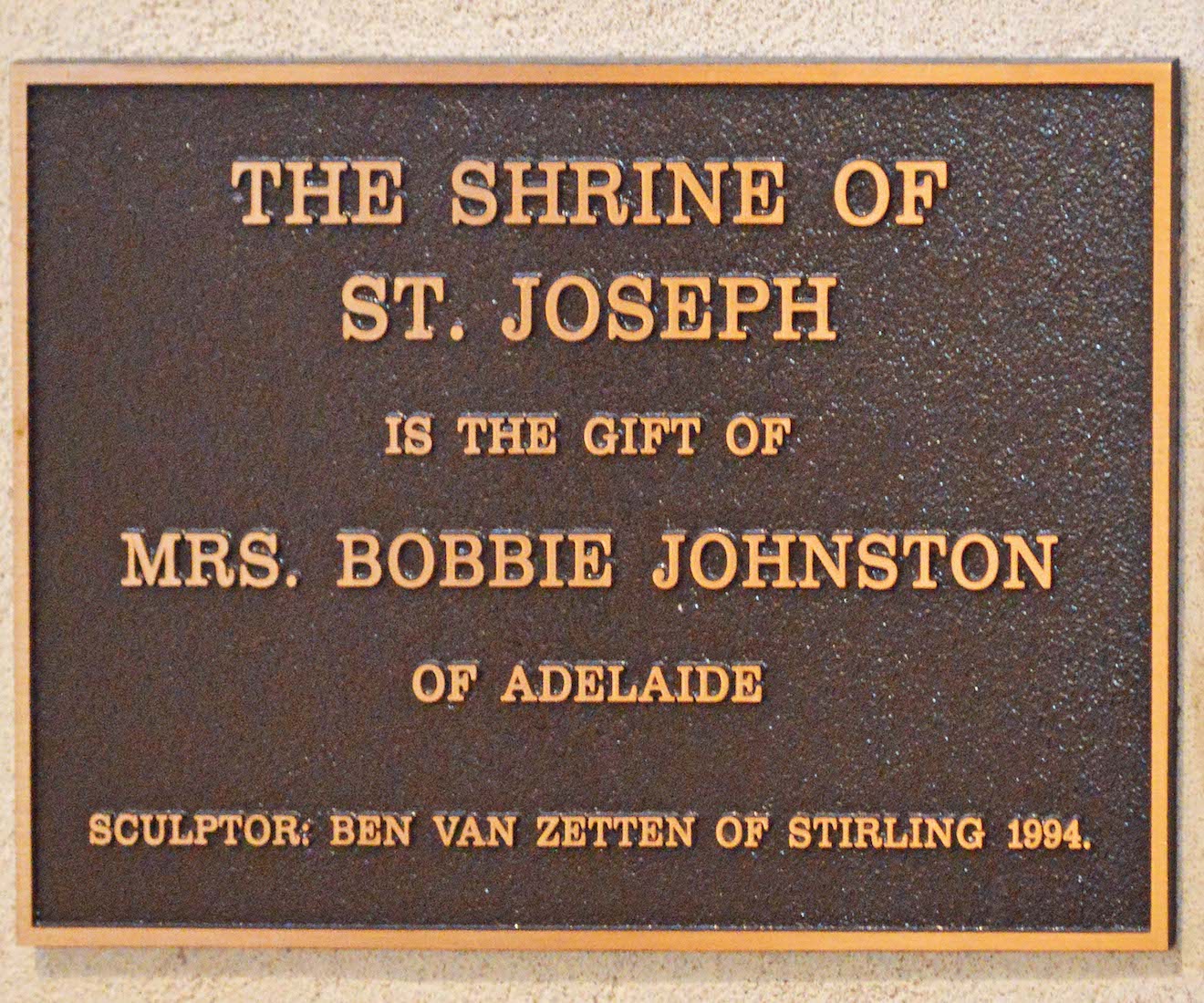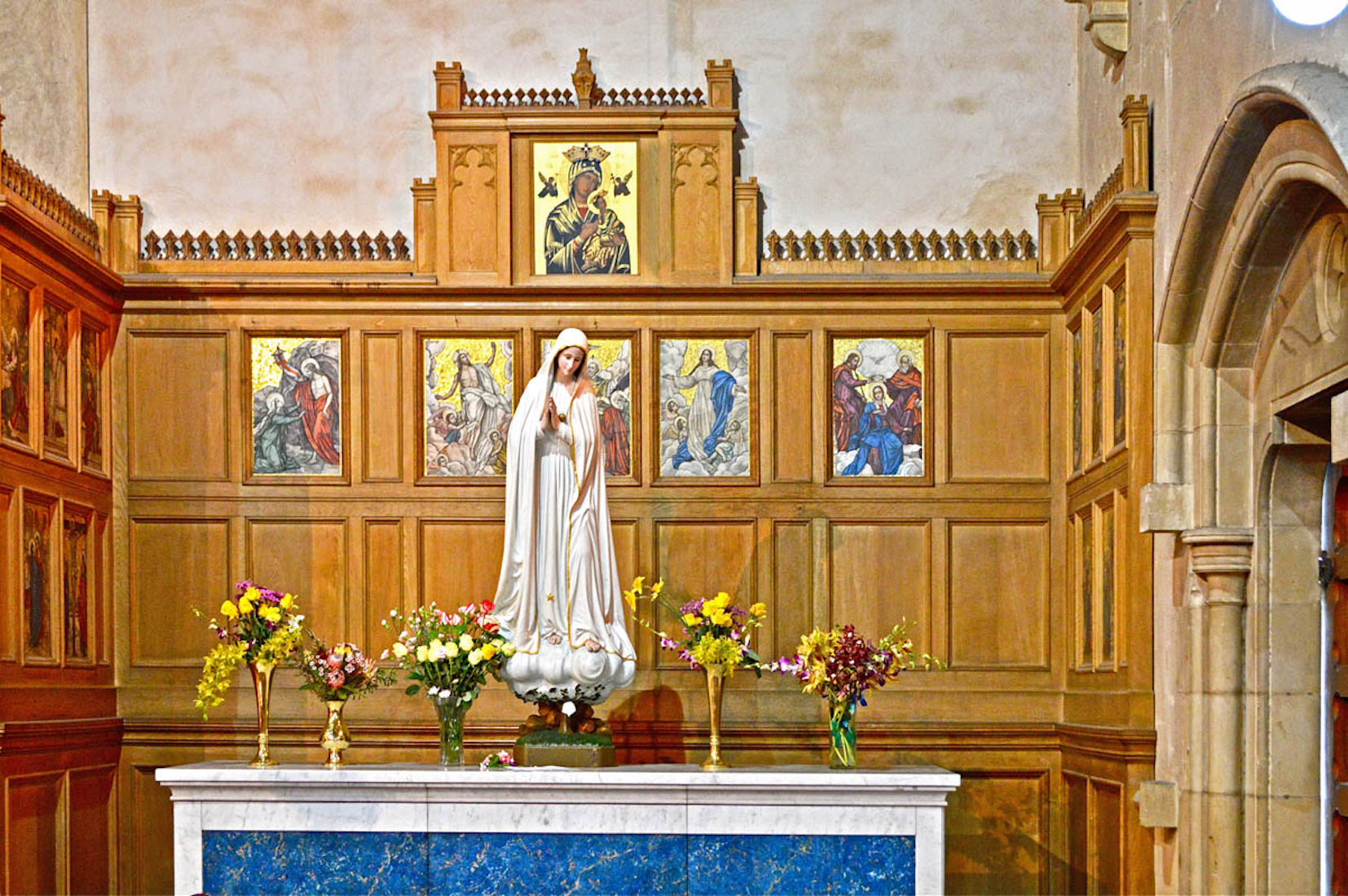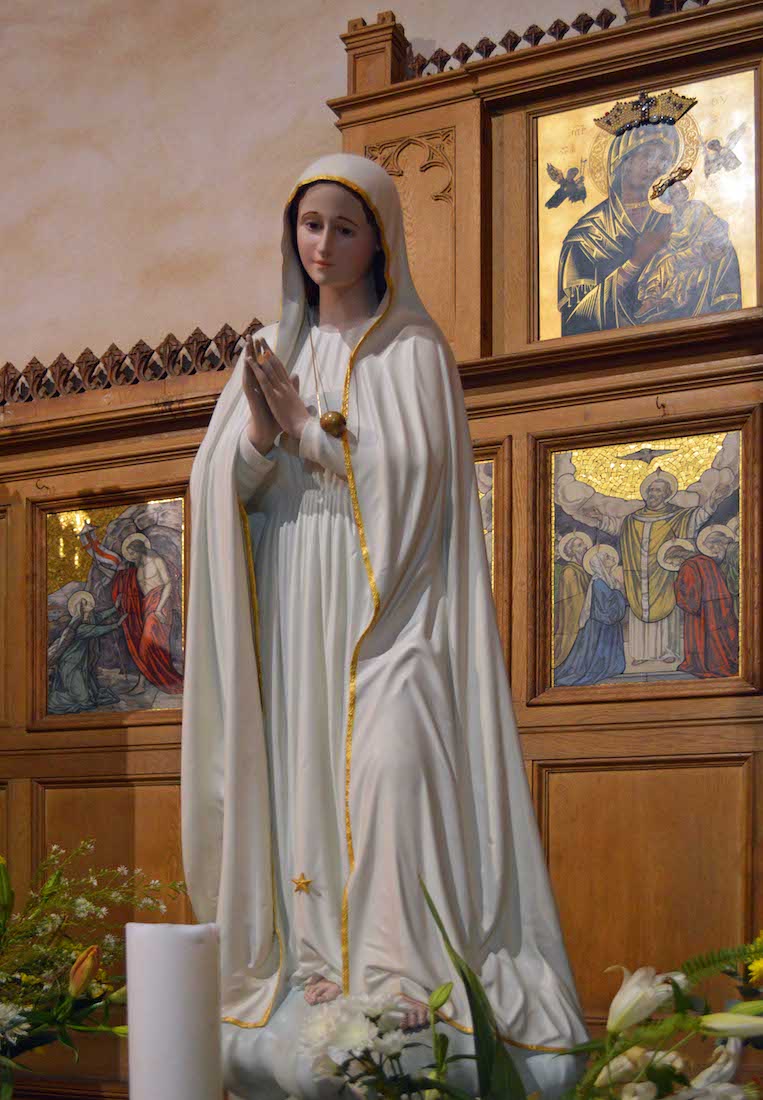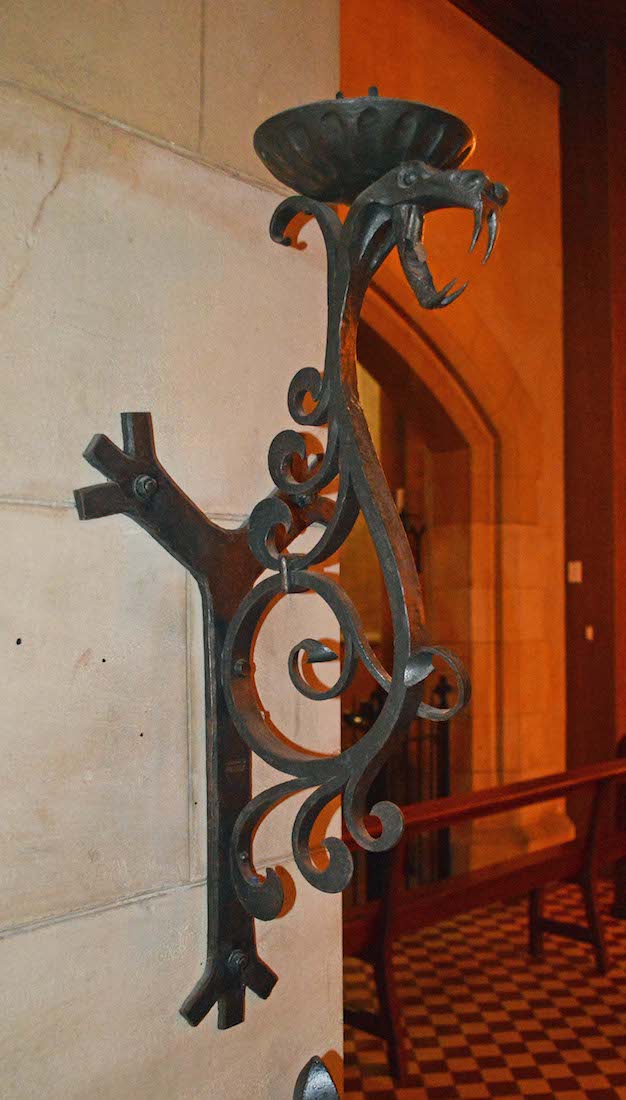
The Baptistry sits on the South side of the entry porch. It is guarded by this fearsome serpent! Assuming the placement is deliberate there will be reference here to the Garden of Eden with the serpent to be crushed by the coming Messiah. INTRODUCTION
22. BAPTISTRY
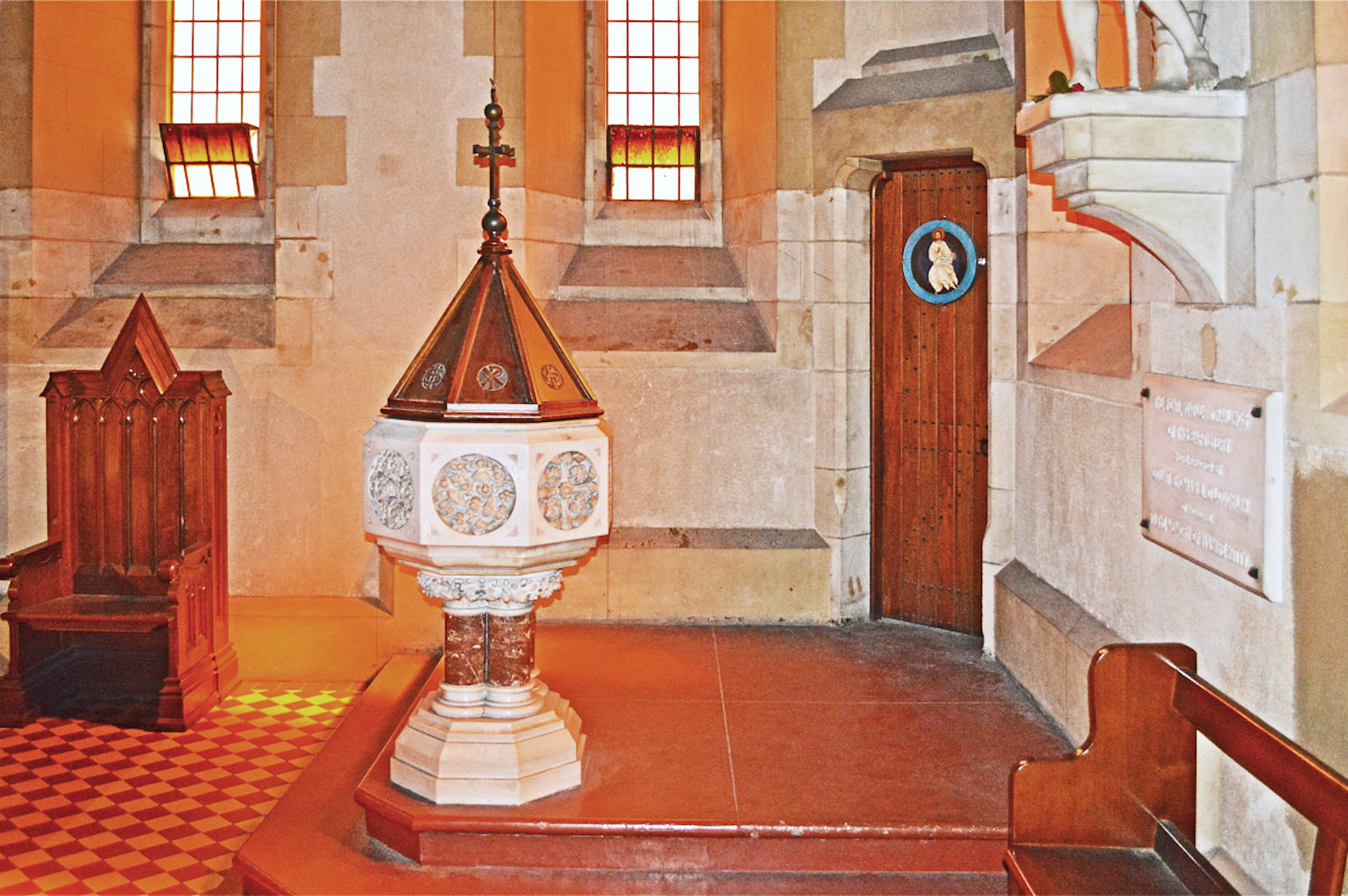
The octagonal font was carved in Tuscany, Italy in 1925. The eighth side features a roundel containing a sculpted relief of The Baptism of Christ.
23. BAPTISTRY FROM THE NAVE
Looking Westward from the nave we have a different view of the baptistry (baptistery). The door leads to the tower, ahead is a statue and plaque, and out of sight to our right is an interesting painting.
24. OUR LADY OF THE ABORIGINES
This picture is hidden away on the North wall of the baptistry. It is a copy of a picture enshrined in St Mary’s Star of the Sea Cathedral in Darwin. It is interesting (and natural) that different races depict the Madonna and Child in their own context.
25. BAPTISTRY MEMORIAL
This stone has the inscription: ‘The font, statue and railings of this baptistery were erected by Count Thomas J. O’Loughlin of Melbourne to the memory of his wife Kitty.’
26. BAPTISTRY STATUE
Standing above the memorial stone is this unidentified statue, presumably of John the Baptist.
27. WEST DOORS
The main front entry doors into the Cathedral contain coloured glass panels which feature coats of arms of Popes, Bishops and of the City of Adelaide. Other symbols include the phoenix, pelican, baptism and the eucharist.
28. SIDE PANELS
On either side of the main entry doors stands another pair of doors. Many of the orange-brown squared glass panels have been replaced with golden glass panels with various (unexplained) coats of arms.
30. EASTERN NAVE
We look down the central aisle to the altar (not at Easter!) which is framed by a Gothic arch. Our view is flanked by a row of graceful Gothic arches on each side. Above each of these sits a row of clerestory windows (in brownish glass), while high above floats the gabled ceiling in white with dark brown timbers.
31. NAVE TILING
The floor of the nave is tiled in plain brown tiles with a recurring star motif featuring the four fleurs-de-lit at its centre. A generous gift in 2005 enabled this tessellated tiling of the floor.
32. STATION IV
The walls of the nave are lined with the 14 Stations of the Cross. These describe pictorially the events leading up to the Crucifixion. Here Jesus meets his mother.
33. STATION VI
The Stations of the Cross are used as a devotional aid, particularly at Easter time. In Station VI, Veronica wipes the face of Jesus. Legend has it that the imprint of Jesus’ face was left on the cloth.
34. NAVE VIEW
We look towards the South East corner of the nave. Following along the South aisle we will come to the St Joseph shrine, and then the Lady Chapel.
36. FLIGHT INTO EGYPT
Also by the St Joseph’s Shrine is a bas-relief of the Flight into Egypt, again crafted by B. van Zetten in 1994.
37. LANTERN
Above the St Joseph shrine hangs this delightful lantern.
38. SHRINE PLAQUE
The plaque states that the Shrine of St Joseph was the gift of Mrs Bobbie Johnston of Adelaide. The sculptor is given as Ben van Zetten of Stirling, 1994.
40. OUR LADY
Mary is also known as Saint Mary, the Virgin Mary, Our Lady, and the Madonna (amongst other titles, styles and honorifics). She was a Galilean Jewish woman of Nazareth and the mother of Jesus. [Mt 1:16,18-25; Lk 1:26-56; 2:1-7] To distinguish her from the many other Marys appearing in the gospels, she is accordingly often referred to as ‘Mary mother of Jesus’.


